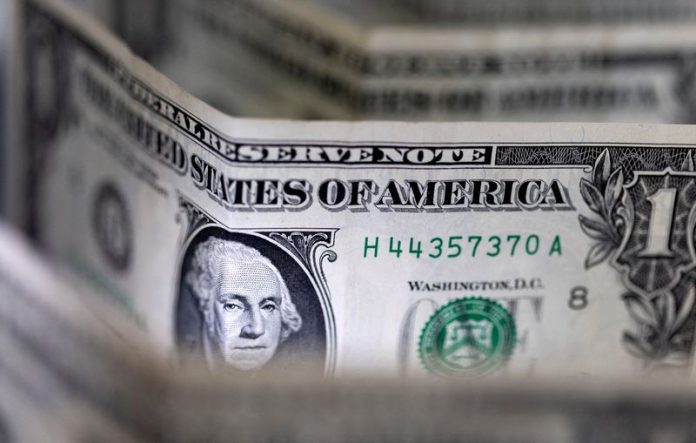Investing
The U.S. dollar rose in early European trade Monday, trading near a five-week high on concerns the Federal Reserve could keep raising interest rates, while property sector concerns weighed on the Chinese yuan.
At 03:20 ET (07:20 GMT), the Dollar Index, which tracks the greenback against a basket of six other currencies, traded 0.1% higher at 102.802, having earlier touched a more than one month high of 103.02.
Dollar in demand after U.S. PPI release
The dollar has been in demand after U.S. producer prices increased more than expected in July, data showed Friday, adding to the previous day’s modest increase in consumer prices.
These numbers raised concerns that the Federal Reserve may still increase interest rates further when it next meets in September, even if markets still widely expect the U.S. central bank to end its rate hike cycle then.
“We think the recent price action denotes a reluctance to rotate away from the greenback given the emergence of concerning stories in other parts of the world,” said analysts at ING, in a note.
“This is not to say that the activity outlook in the US is particularly bright – jobless claims touched a one-month high yesterday, and the outlook remains very vulnerable to deteriorated credit dynamics – but if economic slowdown alarms are flashing yellow in Washington, they are flashing amber in Frankfurt and Beijing.”
The economic data slate is largely empty Monday, but July retail sales are due on Tuesday, and are expected to show a pickup in demand at the start of the third quarter after a smaller-than-expected increase in June.
Chinese yuan weakens on property woes
USD/CNY rose 0.3% to 7.2550, with the yuan falling to a five-week low amid growing concerns over worsening economic conditions in China.
Country Garden (HK:2007), one of the country’s biggest property developers, slumped to a new record low on Monday after the firm said it will suspend trading in its onshore bonds amid growing debt problems.
This scenario bodes poorly for the country’s real estate market, which remains one of China’s biggest economic engines.
German WPI slips lower
EUR/USD fell 0.1% to 1.0941, after German wholesale prices fell 0.2% on the month in July, a drop of 2.8% on an annual basis.
The German economy has been hit by a toxic mix of weak trading with key partner China and a slump in its large manufacturing and construction sectors, threatening to push the eurozone economy into a recession.
This could cause the European Central Bank to pause its year-long rate-hiking campaign in September, even with inflation still running above the central bank’s medium-term target.
Elsewhere, GBP/USD slipped 0.1% to 1.2690, while USD/JPY fell 0.1% to 144.81, after earlier breaching the key 145 level, stoking worries of another round of intervention.




